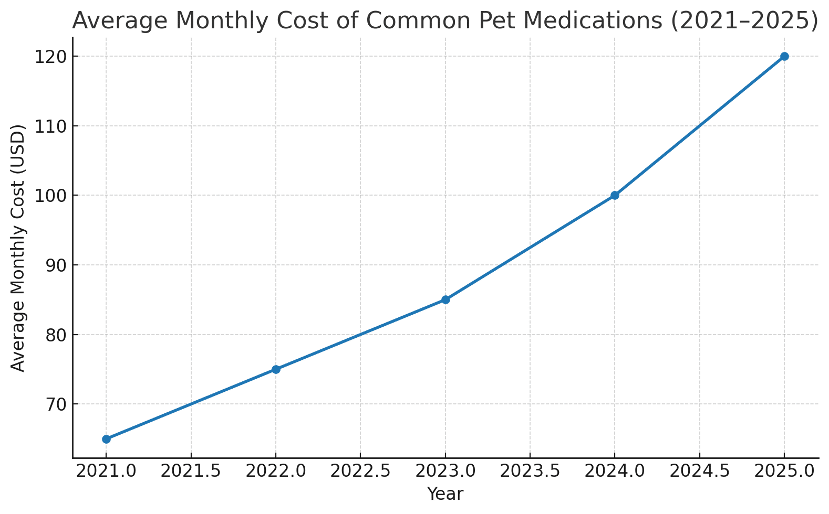When Lou Botha’s golden retriever, Buddy, was diagnosed with arthritis last year, she promised she’d do whatever it took to keep him comfortable. But by this spring, the $120-a-month price tag for his medication meant something else had to give.
“There were weeks when I’d stand in the pharmacy aisle with his prescription in one hand and my grocery list in the other, wondering what I could cut,” she said. “You don’t ever think you’ll be in a position where you have to choose, but here I am.”
Lou’s story is far from unique. A Gallup survey released this year found that 53% of pet owners have delayed or skipped veterinary treatment due to cost. In some heartbreaking cases, veterinarians say they’ve seen an uptick in “economic euthanasia”—where an otherwise treatable pet is put down because the family can’t afford the medication or procedure.
Love Is Not Always Enough
Caring for a pet in 2025 means more than playtime and belly rubs—it’s an ongoing medical commitment. Year-round flea and tick prevention, heartworm medication, vaccines, and chronic illness treatments all add up.
For pets with conditions like arthritis, heart disease, or severe allergies, monthly medication costs can range from $80 to $150. Dr. Marcus Hall, a veterinarian in Austin, says, “We see clients start a medication with every intention to keep going, but after a few months, the financial strain catches up. Skipping doses or stopping early almost always means the condition worsens—and the cost of care skyrockets later.”
Average Monthly Cost of Common Pet Medications (2021–2025)

The Preventive Care Gap
Preventive medicine is often the first thing to slip. Veterinary data shows that most pet owners only give heartworm and flea/tick preventatives for about six months a year. But as Dr. Hall warns, “Parasites don’t take the winter off.” When preventives lapse, illnesses like Lyme disease or heartworm can develop—both of which are far more expensive, and dangerous, to treat.
For Lou, it’s the small choices that haunt her most. “I know missing even a few doses can undo all the progress we’ve made,” she said. “It’s like playing roulette with Buddy’s health, and that’s a terrible feeling.”
Searching for Solutions
The good news? Affordable options are emerging. Licensed online veterinary pharmacies are offering FDA-approved medications at significantly lower prices than many brick-and-mortar clinics. By cutting retail markups and shipping directly to pet owners, they’re helping families stay consistent with treatment.
“I tell my clients: explore all safe, legitimate channels for getting your pet’s medication,” Dr. Hall said. “The goal is the same for everyone—keep the animal healthy without bankrupting the family.”
Choosing Care Over Compromise
For Lou, switching to an online supplier, like PetMedOnline.com, brought Buddy’s medication cost down by nearly 40%. “It’s still not cheap, but it’s the difference between going without and making it work,” she said.
Behind every statistic about skipped treatments or rising costs is a person who loves their pet like family—and a pet whose quality of life depends on that love being backed by affordable care.
Because in the end, the choice no one wants to face is whether to pay for medicine or say goodbye.
